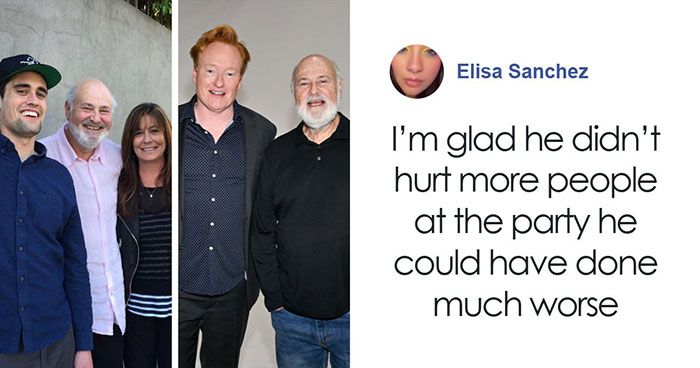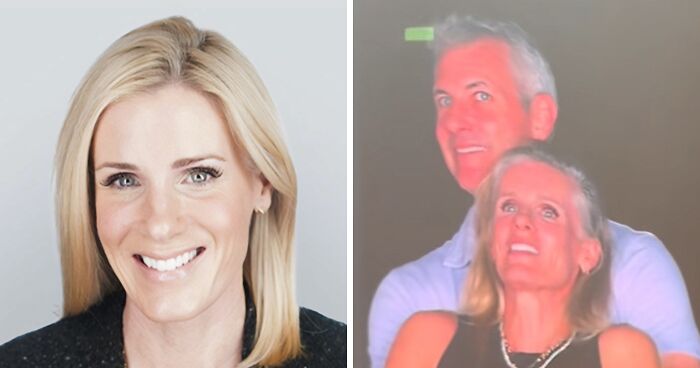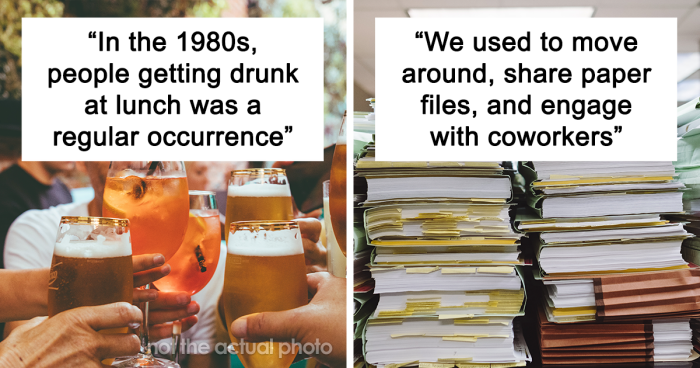
“It Was A Culture Of Fear”: People Over 50 Reveal What Work Culture Used To Look Like
InterviewSometimes, when watching an old show or a period piece, you get a glimpse of what offices were truly like in the past. Cigarette smoke, strict dress codes, and not a single computer in sight, for example.
Someone wanted to hear from netizens “who are 50+ years old, what has changed the most about working when you started working vs working nowadays?” Older folks shared their best examples. So prepare for a blast from the past, get comfortable as you scroll through, be sure to upvote your favorite examples, and share your own if you have any. We also got in touch with LightningStrikes818 to learn more.
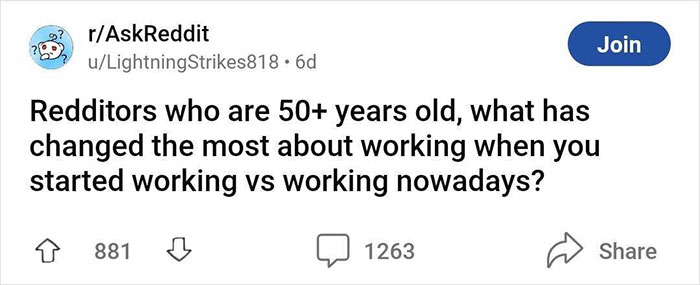
This post may include affiliate links.
 I've been working in healthcare for 33+ years. At the beginning (late 80s/early 90s), everything was patient centered. Now it's payment centered.
I've been working in healthcare for 33+ years. At the beginning (late 80s/early 90s), everything was patient centered. Now it's payment centered.
Bored Panda got in touch with LightningStrikes818 and they were kind enough to answer some of our questions. Firstly, we were curious to learn why they asked this particular question to the internet.
“It's a topic that I have had on my mind for a bit. I feel like young and old generations are clashing on a lot of things in general right now, whether in the workplace, politics, general cultural and social values, etc. I'm a 28-year-old man. As much as I can complain about things in the modern workplace, I didn't experience what work was like for people who are 50+ years old who started their careers and first jobs in a very different world. I feel like old people love to say how much easier younger people have it now and only complain while young people love to say how much easier older people had it and only complain about us!”
 The people at the top earned a great salary and everyone else a good salary.
Now the people at the top subscribe to the pirate life, take everything, give nothing back.
The people at the top earned a great salary and everyone else a good salary.
Now the people at the top subscribe to the pirate life, take everything, give nothing back.
 In the early 90’s I could get by on minimum wage full time. Now it would not be possible
In the early 90’s I could get by on minimum wage full time. Now it would not be possible
“The truth is I wish both generations actually talked to each other and could have more honest conversations with each other about their experiences at work. I feel like more common ground could be found than people realized. I loved reading the comments on my thread. It was truly fascinating and my question truly struck a nerve with a lot of Redditors. I'm glad I was able to give people who have been working way longer than me a voice, to be honest about what they've been through at work and how things have changed over time, for better and/or for worse,” he shared with Bored Panda.
 I watched office work go from sedentary to virtually immobile. We used to retrieve paper files, pass memos around, consult with coworkers in other sections and floors. Now everything is available on the screen in front of us, everything can be shared with a few clicks. It’s convenient, but so unhealthy.
I watched office work go from sedentary to virtually immobile. We used to retrieve paper files, pass memos around, consult with coworkers in other sections and floors. Now everything is available on the screen in front of us, everything can be shared with a few clicks. It’s convenient, but so unhealthy.
It's not even convenient. It's much easier to flip through 100 printed pages in a binder than it is to look for it in a 100 page PDF. That is if you can even find that PDF in the company cloud mess.
 Benefits.
I used to get 20 vacation days and 10/12 sick days. Now I get 20 PTO days. So, that’s a one-third reduction in benefits.
I always purchase the best health insurance my employer offers, now the best is garbage. Twenty years ago, I was hospitalized, tons of tests and specialists, private room, final bill: $0. My kid was born five weeks premature, spent four weeks in NICU, final bill: $0. Now, if I go to the doctor, every single thing costs extra.
All the benefits have been dramatically reduced, but profits skyrocket.
Benefits.
I used to get 20 vacation days and 10/12 sick days. Now I get 20 PTO days. So, that’s a one-third reduction in benefits.
I always purchase the best health insurance my employer offers, now the best is garbage. Twenty years ago, I was hospitalized, tons of tests and specialists, private room, final bill: $0. My kid was born five weeks premature, spent four weeks in NICU, final bill: $0. Now, if I go to the doctor, every single thing costs extra.
All the benefits have been dramatically reduced, but profits skyrocket.
 People smoking indoors. Clouds of smoke everywhere in the office and no way for a nonsmoker to avoid it. That was the norm so you just had to suck it up.
People smoking indoors. Clouds of smoke everywhere in the office and no way for a nonsmoker to avoid it. That was the norm so you just had to suck it up.
That was the ridiculousness of people arguing against non-smoking laws. The only way for people to avoid passive smoking was to completely avoid leaving the house and go anywhere. Smokers claim sometimes that banning smoking in public is forcing a health decision on them. But that's untrue. They still can smoke if they want. They just can't make others smoke anymore. So all that really happened is that they are now forbidden to make that decision for others. They can still participate on society, they are simply limited on smoking. I sometimes asked back if they think personal freedom should mean being allowed to have sex in public. And to please explain to me why it should be forbidden to do so, when it had no consequence for others and people could just look away, but imbibing other people's clothes with nicotine and forcing them to either stay home or breath smoke should be legal.
Given the nature of the question, we wanted to know what he thought about more modern workplaces. “I appreciate that the younger generation is raising the cultural voice of mental health in the workplace and work/life balance. I was in a career for the first 5 1/2 years of my professional life that was absolutely brutal. My work/life balance was horrible, to say the least, and I grew extremely depressed and burned out for a while in my mid-20s because of it. I only got out of that rut by finding a new job that I really like now that values me as a HUMAN rather than a number on a spreadsheet or a number of hours on a schedule. It's demoralizing and exhausting.”
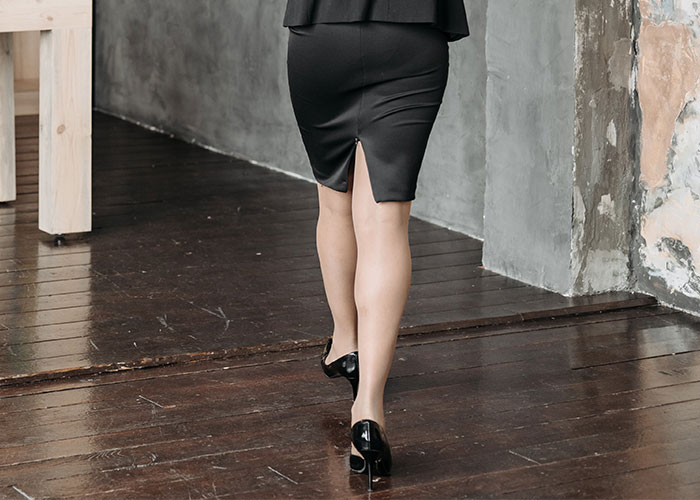 Skirts/dresses and pantyhose required of women in many offices through 1990’s.
Skirts/dresses and pantyhose required of women in many offices through 1990’s.
It is sort of funny how people treat you based on dress. I sometimes wonder if it is still true. ME - mid 80s - selling insurance. For work I wore suit and tie. Off work me was typically jeans and a t-shirt or polo. At various times I shopped in the same stores dressed one way or the other. K-mart or whatever store. There was often a noticeable difference in the way staff treated me, how quickly someone offered to help me and so on. It made me chuckle inside because of course I was still the same person either way. Me now - retired and pretty much permanent jeans or shorts mode so I don't know if a lot of that still goes on.
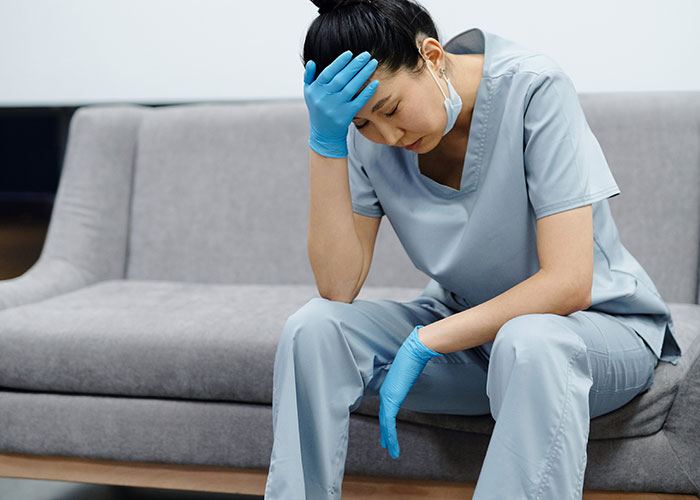 Doctor. Less likely to be literally worked to death due to so called “safe hour” rules where 23 and 26 hour shifts without sleep are now banned. Officially anyway. Also the newer residents are pushing back against unpaid overtime and taking hospital management to court and winning for unpaid wages.
Doctor. Less likely to be literally worked to death due to so called “safe hour” rules where 23 and 26 hour shifts without sleep are now banned. Officially anyway. Also the newer residents are pushing back against unpaid overtime and taking hospital management to court and winning for unpaid wages.
German here. I don't understand why in hospitals (yes even around here) 8-hour-shifts are not the norm. Like, does anyone really want to have an exhausted doctor or nurse if they have an accident? (And yes, this is a question I would really like to ask any manager or politician who makes more-than-8-hour-shifts the norm.)
 For myself, it was a culture of fear. Sexist bosses who would harass female employees constantly. They didn't have to be male either. I had a female boss that would measure your skirt length by having you kneel on the floor, and would measure your hem with a ruler. More than two inches? Clock out, go home and change and then come back. Rinse and repeat. Many male managers took pride in being able to make women cry. There was public embarrassment if you made a mistake. Feeling like your job was in jeopardy at all times.
Surprisingly, I don't miss it.
For myself, it was a culture of fear. Sexist bosses who would harass female employees constantly. They didn't have to be male either. I had a female boss that would measure your skirt length by having you kneel on the floor, and would measure your hem with a ruler. More than two inches? Clock out, go home and change and then come back. Rinse and repeat. Many male managers took pride in being able to make women cry. There was public embarrassment if you made a mistake. Feeling like your job was in jeopardy at all times.
Surprisingly, I don't miss it.
“I also personally love the ability to work from home. That really changed my life for the better. I used to go into the office sometimes 7 days a week (yes, 7 at the worst). I had no energy to do anything else after doing this. I'm so thankful remote work has become normalized.”
“Lastly, from my personal experience, I feel like workplaces have become a little less tolerant of bosses/people in general who acted really horribly towards others. This is a problem that won't ever fully go away but I do think there's a little more accessibility to calling people out who blatantly harass, bully, and create hostile work environments. People are more highly aware of "toxic work environments" and won't put up with them nowadays - job hopping is more common than ever. People are demanding more and better from their employers, and I say good for them! If you're surrounded by a draining and poor work environment - it's best to leave. I've done it before and never regretted it, not once. It seems like employees have more of a voice now for their workplace concerns and more opportunities to find better out there. Job hopping is totally normalized.”
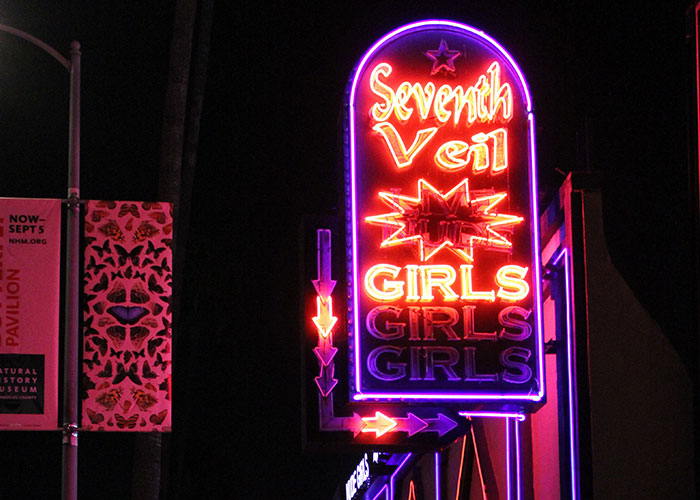 We took a company van with a logo on it to take out of town guests to a strip club. I don’t even think I can say that out loud at work today.
We took a company van with a logo on it to take out of town guests to a strip club. I don’t even think I can say that out loud at work today.
That you chose a career, and you worked for an employee - and they valued your experience. You rose in the ranks of your profession, you became a valued team member, and you stayed until you retired. Changing jobs often is frowned on, if you make a job commitment - you follow through on it. People get bothered and quit/move/change really quickly now. That's not necessarily bad, but it has created a gap in expertise - everyone is new all the time, and there isn't any value in having experience. If you happen to be an elder in your field with some level of legacy knowledge -it doesn't seem to matter because your boss is likely younger than you, and less experienced. There used to be jobs - what you did to get paid and live, and careers - what you did because you wanted to invest time into being good at something AND that was how you made a living. Moreover - you went to school to be in a career. So you put time and energy into attaining your job, therefore you'd want to stay in it and grow. In theory. I'm not sure anyone cares about being in a career anymore. Because we all feel so betrayed by the system - wages not keeping up with COL, inflation, (and inflation subsiding and prices staying high because its what the market will bear) - when everyone is replaceable, then no one is an expert. I'm GenX. I work in healthcare. I work in a broken system that no one actually wants to fix. Those of us working in this system are now just grist for the mill. It's too bad because we spent a lot of time and money to go to school to be able to work in our chosen field. In contrast - my mom was also a nurse. She had a career. She worked in it until she was 70 and retired. She worked with a team that mostly stayed the same, over decades. I don't work with anyone I started with at my job 6 years ago.
On the other hand, we were also interested to hear what he thought we could learn from workplaces of the past. “I think companies should read my thread, honestly. I saw comments about how careers used to mean you were supposed to stay at a job for years and years and develop your craft solely with them. That is not the case anymore. Companies need to ask themselves why employees are less willing to stay longer now. My personal experience with job hopping is that I often found I could get paid more by job hopping every 2 years in my old career path. That shouldn't be the case, but it is. It seems like in-company raises are underwhelming people and companies aren't giving enough other reasons for people to stay.”
Customer service: how rude patrons have become
Companies outsourcing their "customer service" hotlines to foreign countries is the worst. I was recently on such a call to "Timmy" in Pakistan who had dogs barking and fighting near him during the call..........it was painful to say the least.
 Hardly anybody has a pension anymore.
Hardly anybody has a pension anymore.
I'm 42 but feel like I want to chime in. Health and safety has changed loads. You wouldn't get away with half the s**t we did when I was 17
“A big theme of the replies seemed to be that how much work we get done in a limited amount of time along with less resource waste along the way is hugely improved, but the wages and what we as a society get out of work has not kept up accordingly. Which is sad, in my opinion. Think of how much more work people would do if they actually felt financially, emotionally, and professionally fulfilled. Corporate greed killed optimism in the workplace, in my opinion.”
 Sending a memo meant typing something, sometimes on an actual typewriter. Physically passing said document to the people in the “to” line. They would sign their initials signifying they read it. Then pass on to the next.
I remember people used to smoke cigarettes in their office.
Sending a memo meant typing something, sometimes on an actual typewriter. Physically passing said document to the people in the “to” line. They would sign their initials signifying they read it. Then pass on to the next.
I remember people used to smoke cigarettes in their office.
 Maternity and paternity leave are new (US). When I started working it was still common to fire women who were expecting. Or require them to take very little leave. Women used to brag about taking only a few days off.
Today the young men where I work get months off as paternity leave when their spouses have a baby.
Maternity and paternity leave are new (US). When I started working it was still common to fire women who were expecting. Or require them to take very little leave. Women used to brag about taking only a few days off.
Today the young men where I work get months off as paternity leave when their spouses have a baby.
Since when is this a thing at all in the US? I keep hearing there are no laws for paid parental leave.
 In the 1980s, people getting s**t-faced drunk at lunch was a regular occurrence. I've only seen it twice in the last 5 years.
Flexible time and WFH didn't exist.
In the 1980s, people getting s**t-faced drunk at lunch was a regular occurrence. I've only seen it twice in the last 5 years.
Flexible time and WFH didn't exist.
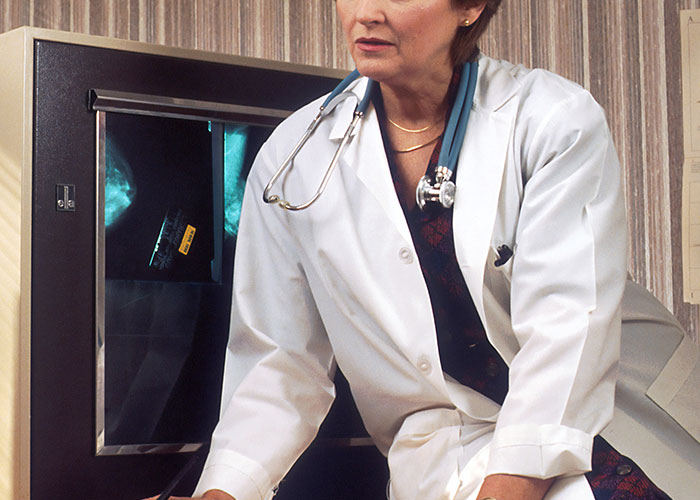 My first health insurance was Blue Cross, top level. Cost me nothing monthly and I had $5 copays.
My first health insurance was Blue Cross, top level. Cost me nothing monthly and I had $5 copays.
 Gifts from vendors were a thing. I used to get things like free bottles of booze from enterprise software companies we licensed from. That dried up years ago.
Gifts from vendors were a thing. I used to get things like free bottles of booze from enterprise software companies we licensed from. That dried up years ago.
Working for a company for many years was seen as honorable and a sign you were a good worker. Now it’s viewed as someone complacent, scared of change and stupid for not salary hopping. I don’t disagree though I’ve been at my company for a long time and it’s anything but complacent and always changing.
I was fired from my first office job out of college (as a secretary for a job recruiting shop) for suggesting the business would fail if the owner didn't give us Internet connectivity. Today the very idea of not having the Internet at an office job is ludicrous. My third office job was working for one of the big accounting firms-- and I spent an inordinate amount of time at work building my little home on the web at Geocities. No one in IT was paying any attention to what people were doing on their computers because it was relatively new. Today it wouldn't take long for IT to discover that misuse. I work 100% remotely right now-- that would have been impossible even four years ago: when i started at this job, the head of my company was on-record saying that she believed working from home would lead to loafing and a tank in productivity. I'm still an exception at 100% WFH, but nearly every employee works a hybrid schedule now... with an increase in productivity. This is going back a bit further-- like to my first job at the age of 16--I was fired for refusing to sleep with the boss... and there were witnesses. At the time sexual harassment hadn't been deemed federally hostile. If he'd pulled that c**p today, I would have owned his business by the time my court case was done.
Asking a 16 year old to sleep with the boss to keep the job. Wouldn't that be attempted statutory rape?
 People used to answer their business phones.
People used to answer their business phones.
I'm in the UK. It was a great deal easier to find work. You'd get vacancies posted in various places and could go down to the Job Centre, browse vacancies posted on postcards on boards, pick out the jobs you were interested in, and get a member of staff to arrange an interview for you. Just like that. Dress codes were more formal and you actually had to go to work. If you worked in an office for the right company work finished Friday lunchtime when you'd go with your colleagues to the pub. You'd go back after the 'liquid' lunch hour and work Friday afternoon, but no s**t got done and work piled up for Monday. You got paid either direct debit, cash or if you were unlucky by cheque. You had to deposit your cheque in the bank or a building society and wait for the cheque to clear, usually 4 days, but sometimes 10 days. If you got paid cash you'd get it in a small brown envelope known as a wage packet which listed all deductions on the outside. It still felt good to tear open the wage packet and take out the cash.
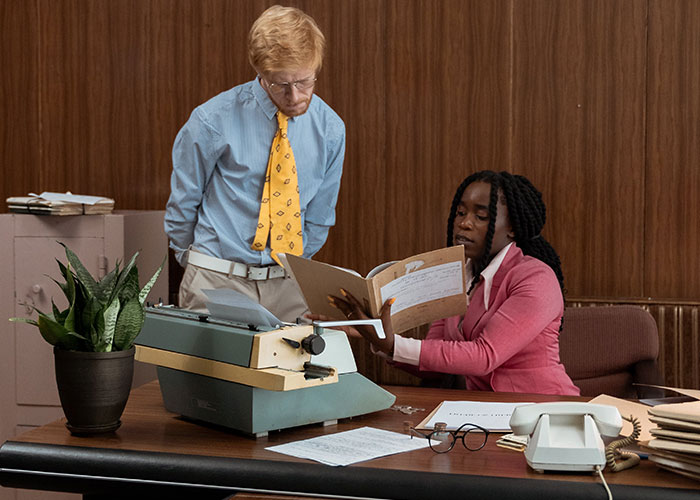 My mom said back in the 80s some people would do c*ke at work. Also a lot of sexual harassment happened a lot and no one ever did anything about it. This was at a government job...
My mom said back in the 80s some people would do c*ke at work. Also a lot of sexual harassment happened a lot and no one ever did anything about it. This was at a government job...
58 YO engineer. When I started we shared computers at work. They were expensive and lots of things were still done by hand. I did not have a computer in college. We also did not have cell phones, texts, e-mail, video conference, internet, etc…. It was nearly impossible to collaborate with people in other offices . Blue prints were sent out for printing and we had flat drawers full of archived prints. We would have to hand sign/seal every page. Now we can collaborate between offices and every thing is an electronic file. It is amazing to me.
 Men had to wear suit/tie to work every day and women had to wear what our company defined as 'interview attire' (professional dress/pantsuit). I remember when our first 'jeans Friday' was implemented, our manager wore jeans to support the effort, but they were ironed with a crease down the middle - hilarious. Now, for the same role at the same company, people work remote and wear sweats or whatever the hell they want.
Men had to wear suit/tie to work every day and women had to wear what our company defined as 'interview attire' (professional dress/pantsuit). I remember when our first 'jeans Friday' was implemented, our manager wore jeans to support the effort, but they were ironed with a crease down the middle - hilarious. Now, for the same role at the same company, people work remote and wear sweats or whatever the hell they want.
It was expected and accepted to take office supplies home. Almost everyone did it and it wasn't looked at like the evil act it is today. (No, I'm not dying to "steal" from my job, but it's just an interesting difference.) Health insurance... I don't think I need to elaborate on how that's gone Christmas bonuses were much more common. Damn, I keep trying to think of changes for the better lol... Oh, well, at least the pay's the same
Paper. Lots of paper. Before email, there were people (secretaries or admins) who would take a memo someone printed out on their computer, make physical copies, and either walk around to every executive’s desk, or put into inter-office mail. This memo could be to a few people, one person, or for a general announcement needed to go to everyone. For expediency, these memos would also be posted in public areas (lunchroom, messaging board) if it was a general notice. These memos were often routed from the head manager throughout the department if it was more for general information. We once had a wave of new hires (about 20 people in our company of 400) and each got their own announcement. So, 20x50 copies = 2 reams of paper. Copied. Hand carried or inter-department mailed. For one set of announcements. Oh, and each department admin had their own routing slip (small piece of paper with each person in the department’s name) that was stapled to the announcement. When you got the memo, you read it, crossed your name off and gave it to the next person on the list. That’s where “they must not have gotten the memo” comes from.
Ah yes, the interoffice memo. People would read it, cross their name off and leave it in their 'out' tray to eventually be picked up and placed in the next person's 'in' tray.
so when i started working my first job was to install a computer and printer into a bank where they had 50 people typing form letters for late mortgage payments. they had a form and they would line up the blank areas of the form and type in the numbers. imagine a giant rectangular room with desks, each one holding an inbox and an outbox and a typerwriter. manual typerwriter. ibm selectrics hadn't come up. i installed the computer, a copy of wordstar with mailmerge and when this room of workers watched all of the letters they needed to produce in a week come out of that printer before lunch they all knew that their jobs were over. banks are not sentimental.
It used to be that when you took time off/vacation, you were actually off. Technology has made it so that we are always “on,” and therefore the expectation is to work and be available to work regardless of where we are and what are status is. I cannot recall the last time that I had time OFF away from my office. Even when on holiday overseas, I am pressed and pulled upon to work. Some thrive on this, I simply find it upsettingly exhausting.
According to the regulations of the company where I work and the labor regulations in Spain there is a so-called digital disconnection. If you are on vacation or out of working hours your bosses or colleagues should not send you e-mail or call you, but if they do, you as an employee have no obligation to answer the e-mail before your return to the office and of course your work phone can be turned off.
 Workplace was a lot looser in how coworkers interacted with one another. I would say there was more camaraderie back then. Now no one even wants to work around other people, let alone socialize.
Workplace was a lot looser in how coworkers interacted with one another. I would say there was more camaraderie back then. Now no one even wants to work around other people, let alone socialize.
I am a doctor and the current crop of incoming docs can't quite wrap their heads around the fact that there are certain aspects of the job that do not lend themselves easily to 'lifestyle balance'. They expect high salaries, easily predictable hours, etc etc. It is simply the case that taking care of human beings who are sick, scared, or both is complicated and sometimes (not every day) intrusive to a simple schedule. What they do not see though is that the burnout in medicine comes often from trying and failing to control variables instead of embracing the variability and instead throwing yourself into the aspect of helping people. Of course pointing any of this out has strong 'old man yells at clouds' vibes, so mostly we just spend a lot of time waiting for good candidates and turning away tons of mediocre applicants and taking care of our panels until the right docs come along.
I'm not a doctor but I've always viewed what is being said above as sort of similar to a salary exempt management position. Sometimes have to work extra / weird hours for no additional compensation (which a doctor might actually get) but the compensation they routinely get is a lot more than the 'average Joe" is getting. Of course you still try to find a balance but basically you are getting paid extra for the fact the nature of the job sometimes includes some extra hassle.
Drinking culture around work. Back when I started work in the mid 90's, it wasn't completely uncommon for those of us in our mid 20's to go out for a few or more after work on any old night. Now, it's basically never - the drinking and bar aspect is gone, replaced with closet alcoholism.
There was a lot more understanding back in the 80's and 90's that each employee had a life outside of work, and work would end at 5PM. You could leave work and go do something that you liked, maybe a martial arts class or some learning workshop somewhere. There were no phone calls. Text messages and email hadn't happened yet. Pagers were rare. People were in better shape. They had time to workout and were encouraged by their bosses to go do something to keep in shape. These days, it's the opposite. There's no encouragement from your boss or your coworkers other than to just work around the clock. You're never "off". Emails, text messages, Slack messages, video calls, and "tickets" from your company's internal issue tracking system come in at all hours of the day. You're tracked in every way possible these days. You're given impossible deadlines. It now takes incredible willpower to break free and "sneak" away to go workout. You're exhausted all the time, so you lose the desire to workout. You just want sleep. Instead of meeting up with friends somewhere for dinner, you are happy to just get home, get something hot to eat from your microwave, and numb yourself by watching YouTube and Reddit. What you do now during your down time is very low quality and is just done to unwind from the stress which follows you no matter where you are. They call this Flex Time, and its purpose is ostensibly to give you the ability to walk away from your work and go enjoy life. Funny.
In the 80s/90s I did more after-hours work at home. Now the company regulation is that after end of your workday no one can call you for work reasons or force you to do any work and you can not answer it. I also have flexible work but it's more about how you organize your schedule, place of work. Etc... within the working hours. Of course you can take an hour to run your own errands and then make it up later but it's by your own choice as long as the work is done.
I could get away from work by leaving but now I am never away from work with technology now. I had to wear a suit every day as an engineer now is very casual. A lot of the processes and procedures were much more specific and detailed but now it’s much more relaxed. S**t people said at work 30 years ago would never be heard today. HR existed and helped with career planning and people strategy and no idea what they do now?!?
Things run so much leaner now as the excess is gone. When I started, it seemed everyone at VP level and up had an EA. Eating lunch at your desk was weird. You always went out, always had a beer and it was almost always paid for with an exec’s company card. It could get kind of nuts. Bonuses were almost considered mandatory. I remember a holiday party at the company owner’s mansion - about 150 hammered employees and their equally hammered spouses. The evening culminated in him standing at a balcony throwing envelopes of cash to everyone below like some anemic Caligula. The f*****g around on the job was legendary. We weren’t tracked, Teams and Slack were a decade away and we were on the most basic desktops with an internet that was still an incredibly weird and alluring distraction. You could lose a day online and just lie on your time sheet or not do your timesheet at all (time tracking was done to adjust employee ratios internally and not to get paid by our clients). Plus, there was always the rarely used conference room a few floors down where meet your pals for an afternoon of hacky sack. And one floor up was a room dedicated to the smoking of cigarettes, so you could sit there and shoot the s**t with various smokers as they’d come and go. You’d leave smelling like an ashtray with stage four cancer, but nobody ever mentioned everything because 25% of the entire world smelled like that anyway. Not sad to see those days gone, but really glad I got to experience the old school for a few years.
I worked with some folks at a bank. We were all just out of college. We had a cool boss. We went out frequently for lunch, which usually included some red wine. Occasionally, one of us would drive to a good bakery in Beverly Hills and pick up a Schwarzwalder Kirschtorte. Good times
Strippergrams in the office. If you were female and complained or didn't laugh along with the men, you weren't a team player or had no sense of humour.
I remember the execs used to set up a bar in the elevators during holidays and serve people drinks as they got on. They're also used to be a stocked bar in the executive conference rooms. I miss those days, my liver doesn't
Strippergrams in the office. If you were female and complained or didn't laugh along with the men, you weren't a team player or had no sense of humour.
I remember the execs used to set up a bar in the elevators during holidays and serve people drinks as they got on. They're also used to be a stocked bar in the executive conference rooms. I miss those days, my liver doesn't

 Dark Mode
Dark Mode 

 No fees, cancel anytime
No fees, cancel anytime 








































